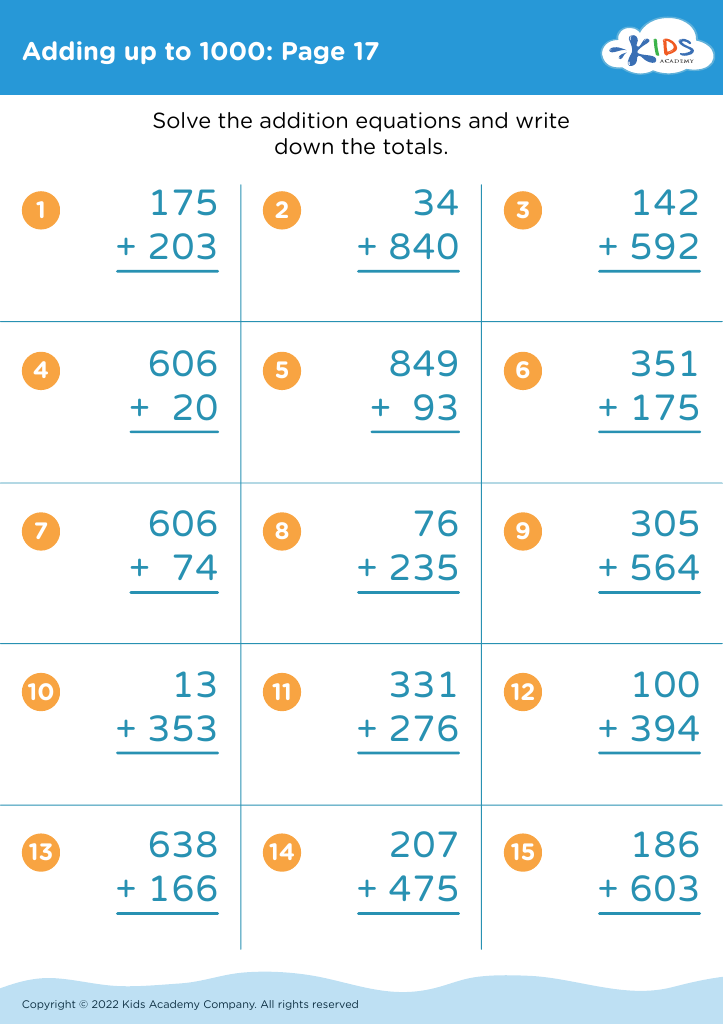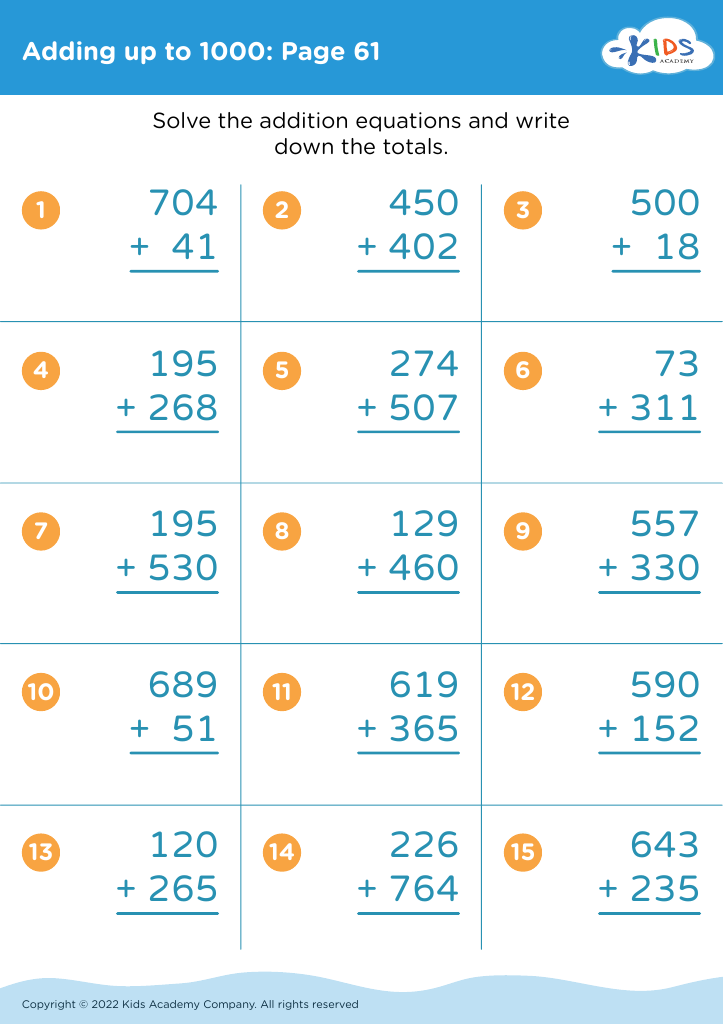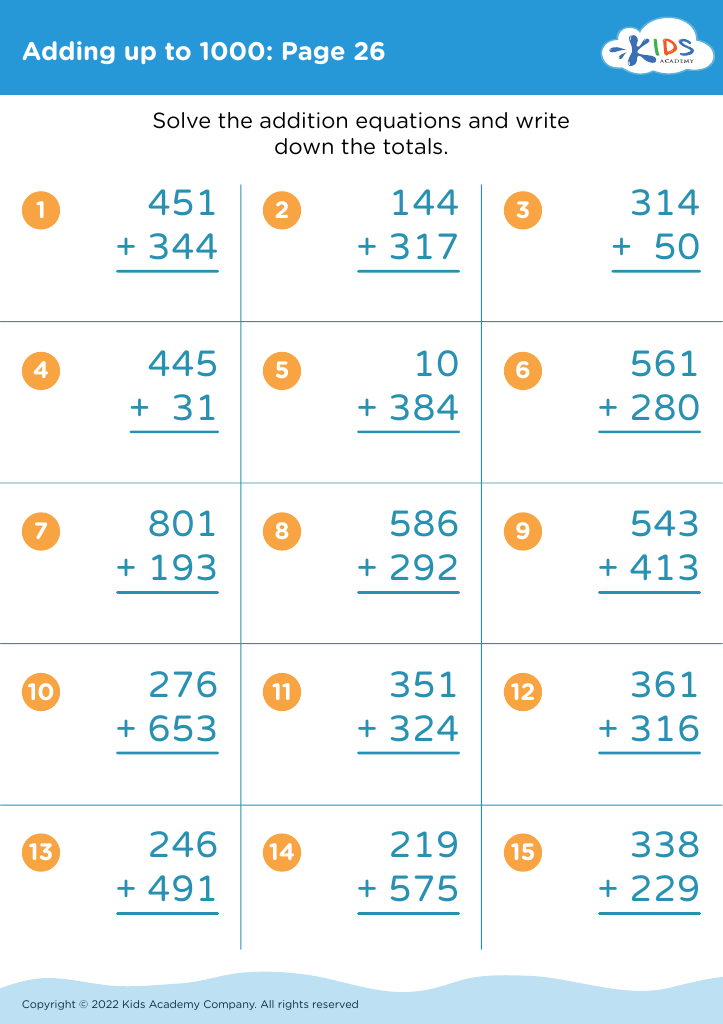Basic Math Skills Adding up to 1000 Misc Worksheets for Ages 7-9
3 filtered results
-
From - To
Explore our "Basic Math Skills: Adding up to 1000" worksheets, specially designed for ages 7-9. Engaging and educational, these worksheets help young learners master addition within 1000 through a variety of fun activities, puzzles, and practice problems. Perfect for reinforcing basic math skills, our resources provide a solid foundation for future math success. Tailored to fit different skill levels, each worksheet aims to boost your child's confidence and proficiency in addition. Visit Kids Academy and make math practice an enjoyable journey for your child!
Basic math skills, such as adding up to 1000, are essential for children ages 7-9 because they form the foundation for more advanced math concepts and everyday problem-solving skills. Understanding these skills at an early age develops a sense of number, which is crucial for future academic success and practical life situations.
Primarily, strong basic math skills improve cognitive development and critical thinking abilities. When children learn to add numbers up to 1000, they engage in mental math, promoting memory retention and logical reasoning. This foundational knowledge also boosts confidence, making children more comfortable with larger, more complex numbers as they progress in their education.
Additionally, math skills are intertwined with many real-world activities, such as budgeting, cooking, and time management. Early proficiency ensures that children can handle these tasks effectively later in life. Parents and teachers who prioritize basic math skills are helping students build resilience in handling everyday challenges.
Moreover, early exposure and practice prevent math anxiety—a common obstacle as children advance in their studies. The earlier children grasp these fundamental concepts, the easier it will be for them to transition smoothly into advanced areas such as multiplication, division, and algebra. Thus, investing time and effort in mastering basic math for children aged 7-9 sets a scaffold for comprehensive, future learning and functional competency in their daily lives.
















